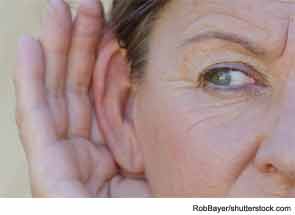SCOTTSDALE, Ariz.—A growing elderly patient population is one of the biggest challenges otolaryngology, and most medical specialties, will face over the next several decades, and the cases presented by this population introduce special circumstances that can call for extra reflection and finesse, as a panel of experts illustrated in a discussion here on Jan. 25 at the Triological Society Combined Sections Meeting. Click here to listen to the complete session on geriatric care.
The aging of baby boomers will put a big strain on the otolaryngology community, said panel moderator David Eibling, MD, professor of otolaryngology at the University of Pittsburgh. “There is an insufficient number of providers specifically trained to handle geriatric issues and the older population,” he said. “Each of us will be facing these patients and their unique issues in the years to come.”
The panel delved into several cases that covered the difficult terrain otolaryngologists must sometimes navigate with this particular population.
Case 1: Worsening Hearing Loss
Marc Bennett, MD, assistant professor of otolaryngology at Vanderbilt University Medical Center in Nashville, presented the case of a 50-year-old woman with a 12-year history of hearing loss, which had gotten much worse over the previous two years. She also had “slightly bothersome” tinnitus in both ears. Her physical exam, neurologic exam and eardrums were all normal.
Robert Sataloff, MD, chair of otolaryngology-head and neck surgery at Drexel University College of Medicine in Philadelphia, said he orders an extensive, and “arguably excessive,” neurological workup on these patients. “Every once in a while, you find that asymmetry is due to something structural,” he said. “Not infrequently, you find something medical.”
He would also order an MRI, he said, though Steven Parnes, MD, chairman of otolaryngology at Albany Medical Center in New York, said he might have a different view. “We’re getting more sensitive to how many imaging studies we’re going to order,” he said. “I think it depends also on the
patient’s presentation. If tinnitus was so dominant unilaterally and [the patient] had some real balance issues, then it might suggest I get an MRI. But other than that, I probably wouldn’t.”
The panel also touched on how much the age of the patient should factor into decisions made by the physician. Dr. Sataloff said, “Until people get very, very old, I personally am uncomfortable withholding treatment that I would give to a 50-year-old from a 75-year-old who may turn out to be a 100-year-old.”

Leave a Reply